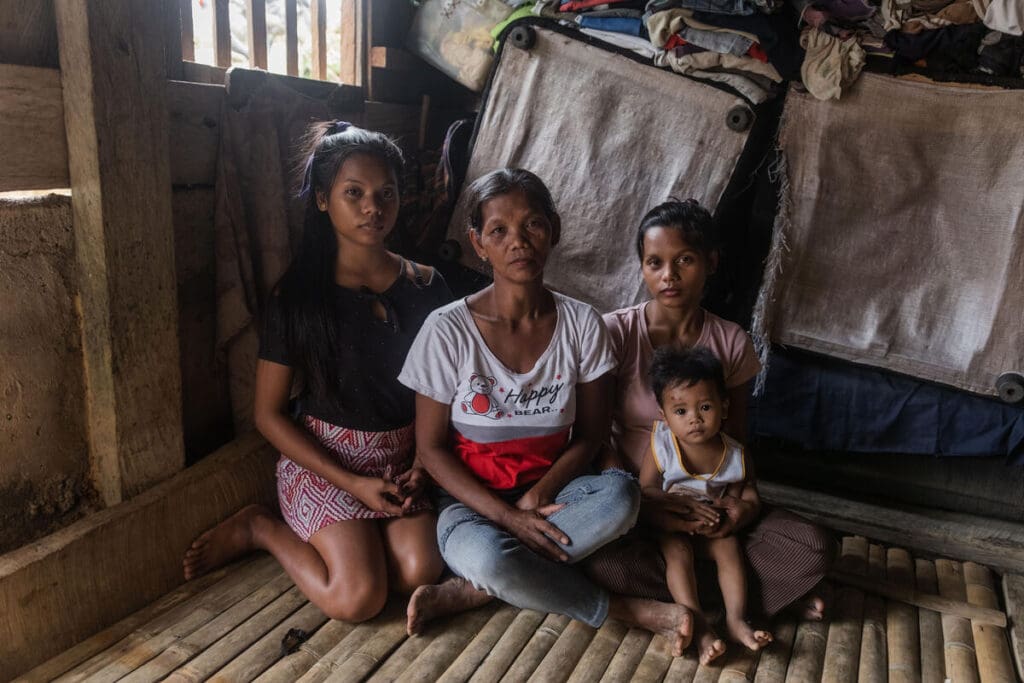WFP Assists the Philippines Government in Responding to Devastating Typhoon Rai

MANILA – The United Nations World Food Programme (WFP) is providing crucial emergency logistics and telecommunications support to the Government of the Philippines in its response to the devastation caused by Typhoon Rai. This is the strongest storm to hit the Philippines in 2021 and the third strongest typhoon to strike the Philippines in December since the 1950s.
“Our thoughts are with the families who have been through so much – the ongoing COVID-19 pandemic and now this devastating typhoon. The U.N. World Food Programme stands firmly with those living on the frontlines of the climate crisis. Under the Government’s leadership, we will do what is needed to help communities recover from this ordeal and continue building their resilience against future shocks,” said U.N. World Food Programme Country Director Brenda Barton.
Typhoon Rai – known locally as “Odette” – made landfall in Siargao Island, Surigao del Norte province, in the southeast of the Philippines, on December 16, bringing torrential rains, heavy winds, storm surges and landslides. After passing through nine central/southern regions, it exited the Philippine Area of Responsibility on December 19, leaving behind a massive trail of damage. The storm has affected the lives and livelihoods of more than 1.8 million people, including more than 600,000 people displaced from their homes and sheltering in evacuation sites.
As of December 20, many communities along the typhoon’s path remain without power or telecommunications. Transportation options are still limited, which is hampering relief efforts. The storm struck as countless Filipinos were still facing hardships linked to the COVID-19 pandemic, which have stretched their coping capacity to the limit.
In collaboration with the U.N. World Food Programme, the Government’s Department of Information, Communications and Technology (DICT) rapidly deployed three newly-built Mobile Operations Vehicles for Emergencies (MOVE) units from pre-positioned bases in Butuan, Davao and Tacloban to the disaster zones in Surigao City and Maasin City in Leyte. In Surigao City, the two MOVE units have become the first means to bring connectivity to the Government coordination and response since the communications infrastructure was damaged by the typhoon. The U.N. World Food Programme IT staff on the ground have also helped set up portable MOVE sets in Siargao Island and are now working on Dinagat Island.
The units are part of the six MOVE units the U.N. World Food Programme co-designed and produced with DICT with an aim to strengthen its telecommunications capacity during rapid-onset emergencies.
The U.N. World Food Programme has donated 12 portable satellite communication devices to DICT and the Department of Social Welfare and Development (DSWD) to help the authorities coordinate their responses in remote areas, and two mobile storage units and a generator for the establishment of a logistics hub in Surigao City. The U.N. World Food Programme is also providing vital logistics support to transport family food packs to affected areas.
The U.N. World Food Programme and humanitarian partners are closely monitoring the formation of another potential storm which could further impact areas already affected by Rai. The U.N. World Food Programme is also coordinating with FAO to draft a response plan for the Food Security and Agriculture cluster.
As part of a coordinated response by UN agencies, NGOs and private sector partners, the U.N. World Food Programme will continue providing telecommunications and logistics support to the Government, and will require $310,000 for this critical support in the next two weeks.
# # #
The United Nations World Food Programme is the 2020 Nobel Peace Prize Laureate. We are the world’s largest humanitarian organization, saving lives in emergencies and using food assistance to build a pathway to peace, stability and prosperity for people recovering from conflict, disasters and the impact of climate change.
Follow us on Twitter @WFPUSA, @wfp_media, @WFP_philippines, and @WFPAsiaPacific




